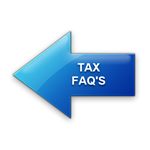What is depreciation for business assets?
Depreciation is an income tax deduction that allows a taxpayer to recover the cost or other basis of certain property on an annual basis. Some examples of property include buildings, vehicles, furniture and other equipment...in addition to intangible property like patents and copyrights.
The property being deducted must be owned or leased by the taxpayer, and must be used in business (or any income-producing activity). Part personal/part business use property must be allocated accordingly. All property being depreciated must have a useful life of more than one year and must not be disposed of in the same year it was put in use.
Depreciation commences when the property is put in service for business use, and is ceased upon being retired from business use, or once the cost or other basis is fully recovered (whichever is first).
For example, a computer being placed in business use has a useful life of five (5) years. So once depreciation begins, the cost [basis] of that computer is deducted over that five year period, assuming it stays in business use. There are several different methods of depreciation, each giving a different deduction scale over the useful life of an asset. Some depreciate on a straight-line method, meaning the depreciation is the same on all whole years. Others have an accelerated method of depreciation which allows for more depreciation in earlier years of the assets life.
It’s important to note that items being depreciated must be tracked throughout their existence in the business. That’s because all business assets are subject to gains and losses, meaning the business may be liable for taxes on any excess of sales price minus cost basis. And cost basis is affected by depreciation since depreciating an asset essentially reduces that assets cost basis by any amount of depreciation, potentially leading to depreciation recapture.
So if a computer was purchased for $1,000 and is immediately used 100% for business, its original basis is that $1,000. If after a few years the adjusted basis is $600 (due to $400 in depreciation) and it is sold at that time for $700, you would have a $100 capital gain subject to capital gains tax (or other tax, such as unrecaptured section 1250 gain, as in the case of residential rental property). So some gains are taxed as short or long-term capital gains, while others may be subject to different tax treatment, depending on the type of property.
Some taxpayers elect to deduct certain property by “Safe harbor expensing”, which takes depreciation and asset-recording out of the picture. There are some requirements for this election, so be sure to contact us with questions.
© 2024 Peshke Financial Inc., all rights reserved. NMLS #2244878. DRE #02210589. "Making Finances Simple. Changing Lives." is a registered trademark with USPTO. Material contained in this website is for informational purposes only and is not meant to be construed as direct financial advice for your specific situation. It is recommended that you consult with your own advisors for any personalized financial guidance. Since we’re not licensed attorneys, we cannot provide legal advice. As such, any info contained in this website should not be construed as direct legal advice. Individual Licensure (see profiles) - click here. Send Docs Securely - click here. Privacy Policy - click here.


